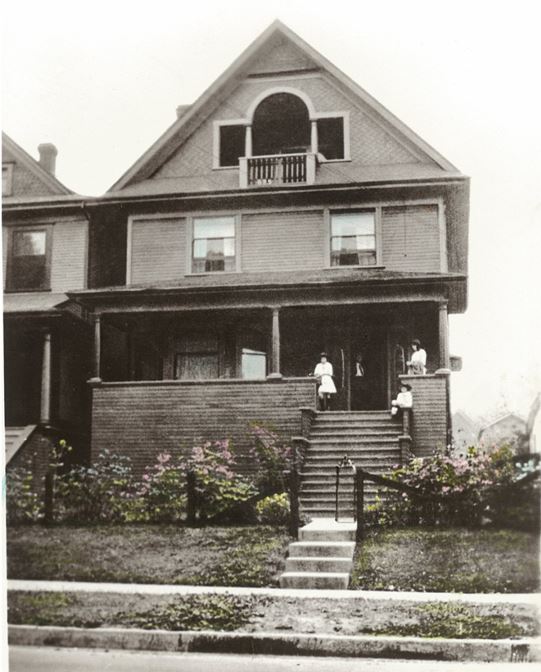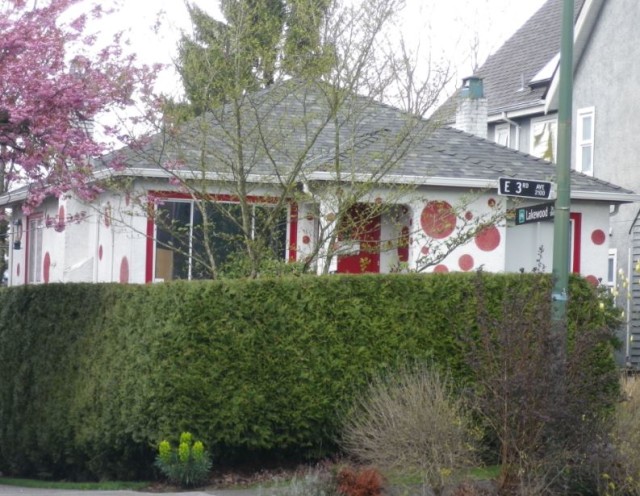
Spite Houses:
A couple of weeks ago I wrote about Spite Houses and ran a picture of a lime green house painted with large purple dots. The back story was the owner had run afoul of the local heritage commission, was denied a building permit for a porch, and chose his colour scheme out of spite.
- Beneath Dark Waters: The Legacy of the Empress of Ireland Shipwreck by Eve Lazarus, coming April 2025. Preorder through Arsenal Pulp Press, online retailers or your your favourite indie bookstore
John Belshaw tipped me off to a white house with red polka dots on the corner of East 3rd and Lakewood, and thought it might have a similar story. I dropped by yesterday, took some photos, knocked on the door, and was astounded to find Chuck Currie, executive chef of White Spot Restaurants answer the door.
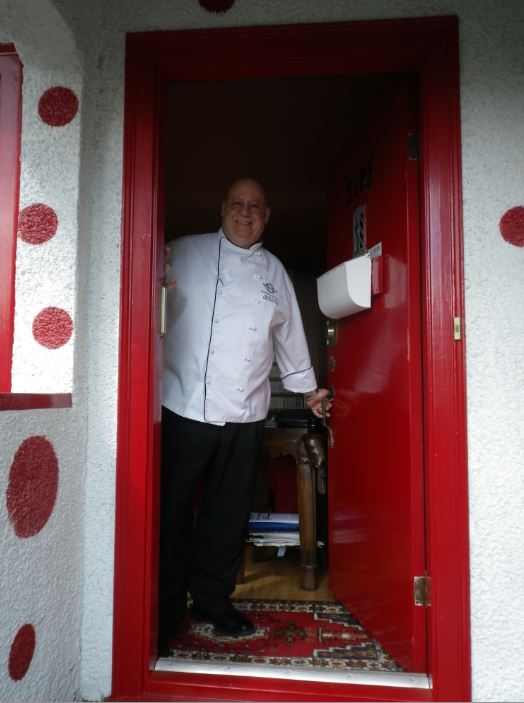
Chuck who has lived in the house since 1989, and painted the polka dots in 1992, says there’s no big story. A friend who owned a painting company went on holidays and came home to find that his friends had painted his house with purple polka dots. Chuck loved the idea and thought it was a great way to liven up his neighbourhood. The neighbourhood incidentally, is packed full of gorgeous old heritage houses.
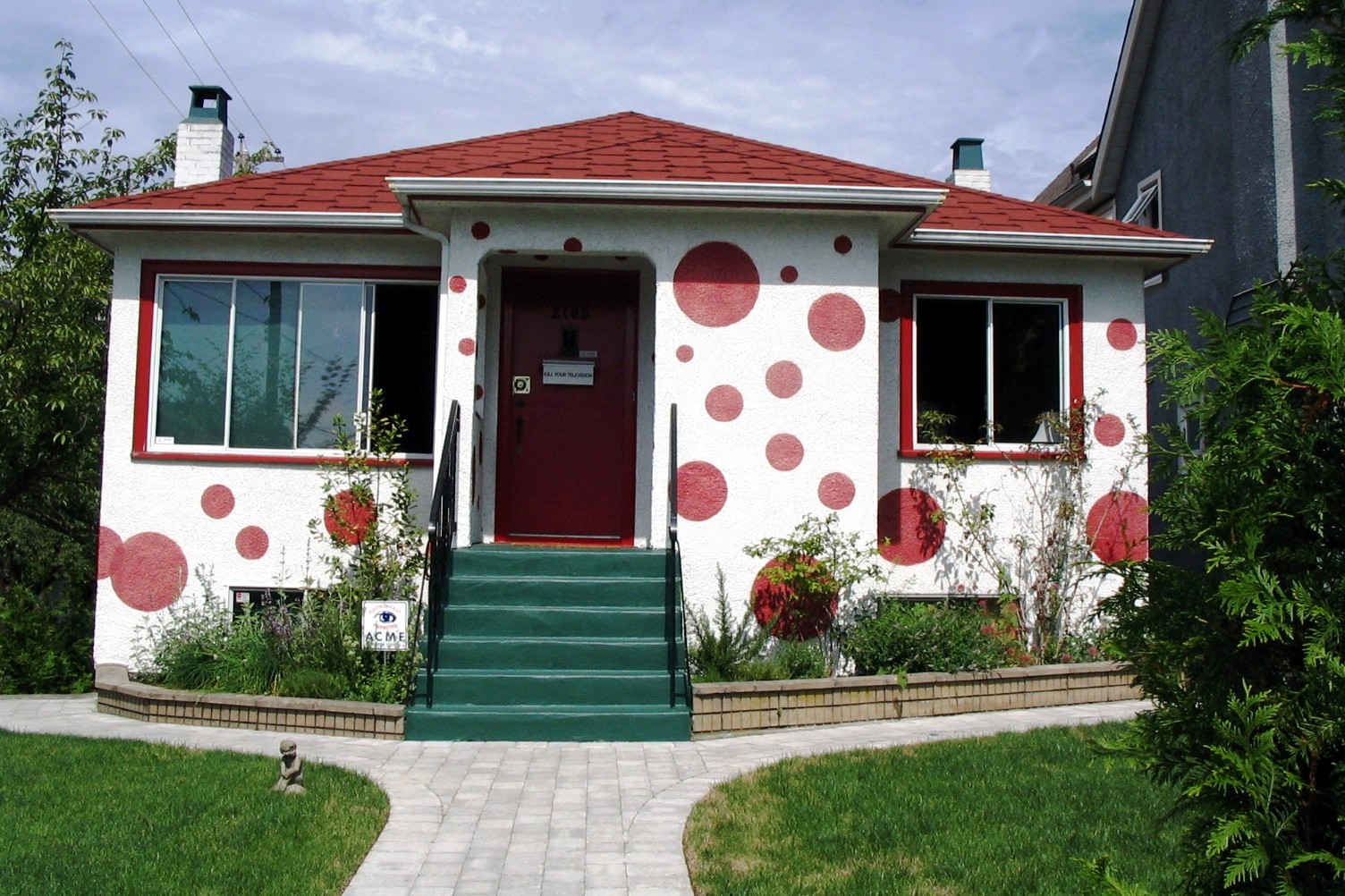
He’s never had a single complaint:
“I still remember the first car that stopped and gaped. It was a cool fall day and the windows were closed but my friend John (the painter) and I could clearly see the driver say “HOLY SHIT. I had a sax quartet rehearsal here that Sunday and one of the musicians said he had been talking to a friend in Toronto who asked him, ‘Say, have you heard about that polka dot house in Vancouver?’ That was five days after we painted it!”
Chef Chuck, who can wrestle up a mean ravioli—he opened up the first Earls Restaurant in 1982—also plays and teaches saxophone and clarinet. He says the great thing about his house is that students find it easily. The other thing is he’s always coming home to find anonymous gifts on his doorstep—bowls, juice pitchers, coffee mugs—all with polka dots of course.
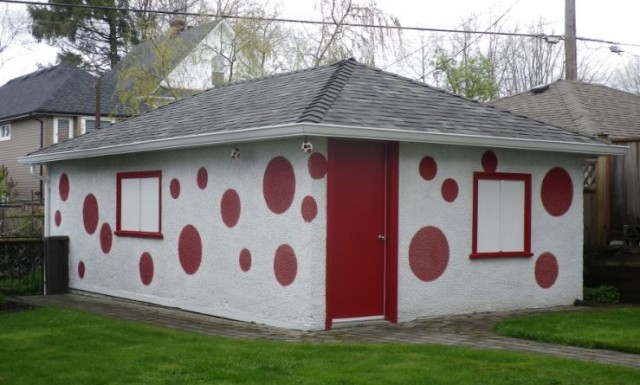
© All rights reserved. Unless otherwise indicated, all blog content copyright Eve Lazarus.



